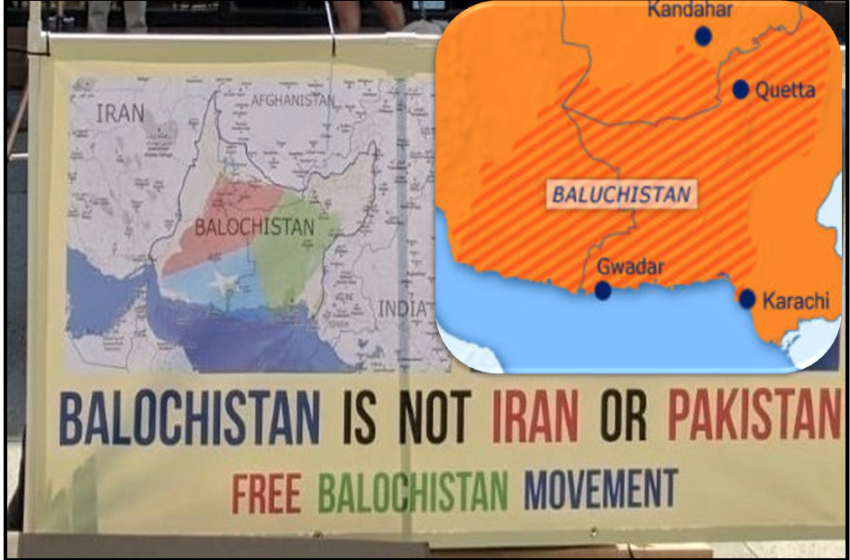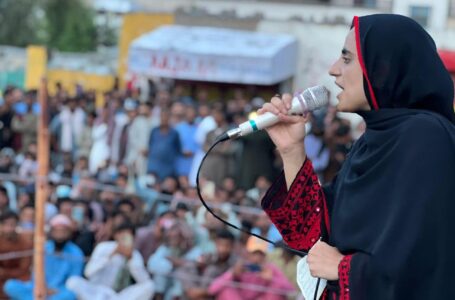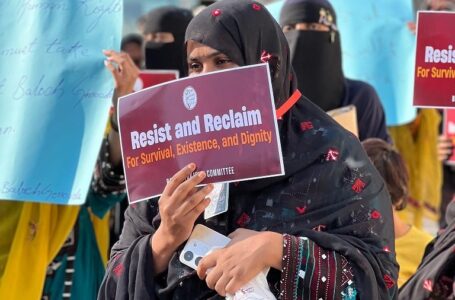FBM Holds Simultaneous Protests Against Pakistan’s Nuclear Tests on Baloch Land
The diplomatic dilemma: Iran, Pakistan versus Balochistan

By Shahdad
The land, known throughout history for its uncompromising nature and strategic position at the center of the world, boasts a rich history of resistance against various occupiers, be it the imperialism of the Portuguese and the British or the occupation by Iran and Pakistan. In retrospect, Balochistan’s history is a testament to the nation’s steadfast commitment to preserving its national interests, sovereignty, and territorial integrity.
The current struggle for Balochistan’s freedom is a continuation of past resistances against Iranian and Pakistani rule. This ongoing fight relies heavily on diplomatic relationships with the global community – for the liberation of the reoccupied Balochistan’s territories — divided by the British into Western, Northern, and Eastern regions now occupied by Iran and Pakistan. For the Baloch nation, this division symbolizes disgust, as both occupiers perpetrate severe human rights violations, loot of natural resources, drug trafficking, child abuse, corruption and nepotism.
Despite the Baloch nation’s exposure of these atrocities to the Western world, Middle East, South Asia, and the Far East through sacrifices and political efforts, the international community has largely neglected the prolonged division of Balochistan. Despite facing injustice since 1896 and 1948 due to the Western and Eastern divisions of Balochistan under the glaring eyes of the global community and the United Nations – which is too responsible for the reoccupation of Balochistan – the Baloch nation continues to highlight the issues by abiding the international laws, codes of ethics, and principles of defensive warfare under international law, which are responsibilities to be demonstrated by all countries.
However, Pakistan and Iran are openly violating the above-mentioned laws and ethics amidst the silent and nonresponsive countries and humanitarian organizations of the world.
In contrast, Pakistan and Iran have destabilized the peace and economies of the region significantly by resorting to terrorism and proxy wars, achieving little more than turmoil. Western nations, including America and the UN with their neglected organizations by Iran and Pakistan, are largely responsible for the turmoil, by establishing friendly diplomatic relationships with these artificial states.
Humanity is much weak subject under United Nations clauses that Politicians and today’s entertaining media have refrained general masses from the causes of agonies of the world, which were felt and understood by the world in the form of 9/11 or 26/11 (Mumbai Attack) and many more terrorist attacks across the West and India. The global media is focused only on those conflicts that are of their vested interest because they fail to fulfill the true journalism duty.
The Strait of Hormuz, owned by the Baloch nation, is being exploited by both occupiers against the global oil market and the people of Balochistan. Iran’s threat to close the Strait in 2008 showcased the potential to wreak havoc in oil markets in the event of an attack by Israel or the United States, with threatening remarks from Iran’s General on June 29, 2008, when the commander of Iran’s Revolutionary Guard, Mohammad Ali Jafari said these remarks and started blackmailing, the world tried repeatedly to negotiate with Iran, but it was deceiving the world with negotiation tactics.
All this blackmailing is being carried out due to the Strait of Hormuz which is Baloch-owned territory, that is to be freed by the help of the international community as a responsibility to atone for past mistakes. Likewise, with the deep sea port of Gwadar Pakistan fulfilled its interests by deceiving both America and China.
Despite attempts to build diplomatic ties, both Iran and Pakistan have betrayed the world with their political tactics, employing globally recognized fanatic surrogates and perpetuating their occupation of Balochistan. The diplomatic deficit is being perpetuated by the Western world, encouraging these states to intensify their occupation of Balochistan, undermining a historic culture and civilization.
The global diplomatic choice of engagement with Iran and Pakistan, about Iran’s soft nuclear deal or silencing Pakistan’s fake war on terror, is deemed a genuine mistake. Baloch leadership, exemplified by Mr. Hyrbyair Marri, has consistently prioritized national interests, referring to the Iran nuclear deal as a pact “with the devil” to safeguard Baloch interests amid global pressure.
The historical division of Balochistan among Iran, Pakistan and Afghanistan by the British is now acknowledged as a mistake, evidenced by ongoing human rights abuses and oppressive occupation.
China, following the footsteps of the West and America, is making a similar mistake by aligning itself diplomatically with Iran and Pakistan. The China-Pakistan Economic Corridor (CPEC) has seen Pakistani military figures amass wealth through Chinese investments, while Baloch resistance remains steadfast against such colonial projects.
Canada, too, is treading a dangerous path by allowing Barrick Gold to exploit Reko Diq against the will of the Baloch nation. Baloch resistance aims to protect the natural resources owned by the Baloch people, presenting a challenge to exploitative projects.
Canada being a civilized country should not fall prey to the Pakistani pawns in Balochistan who are always used by the Pakistani army, as results of manipulated elections failed to produce a truly elected figure before the world, which is a symbolic demand of Baloch nation who chose freedom against parliament under occupation of Pakistan.
The diplomatic choice of engaging with Iran and Pakistan globally is identified as the root cause of turmoil in the Middle East, South Asia, the West, and America. Despite the destructive roles played by these nations, the world continues to deal with the interests of a few aristocrats in Pakistan and Iran, who leverage the occupied territory of United Balochistan to blackmail the international community.
The global community must now question the choice of their diplomatic relationships with these artificial states, as both have consistently played destructive roles against global peace and economic sustainability. In contrast, Balochistan, with its vast resources and strategic location, has much to offer to the world.
While China and Japan maintain substantial forex reserves of 3.1 and 1.1 trillion dollars respectively. Balochistan’s only estimated 1 trillion-dollar worth of gold and copper reserves at Reko Diq, along with other resources like petroleum, natural gas, uranium, barite, chromite, marble, and gypsum, positions it as a sustainable factor for an independent Balochistan and a contributor to global prosperity.
Despite being pumped with financial aid for over seventy years, Pakistan has failed in addressing corruption, terrorism, and the promotion of fanaticism, which are widespread narratives of the Pakistani army to rule occupied nations like Balochistan Sindh, Pakhtunistan, Gilgit and Kashmir by only serving their personal and Punjab’s interests. The concept of Pakistan is based on its Army who are ruling the minds of the people in Pakistan. Today, no country is content with Pakistan and Iran’s roles on the international stage, yet the diplomatic choice persists, driven by the blackmailing tactics of both nations.
The division of Balochistan, with its historical and geopolitical implications, continues to influence the region and the Western and Arab world. It is time for the world to reconsider its diplomatic choices, as the Baloch nation is resolute in regaining its freedom at all costs.










